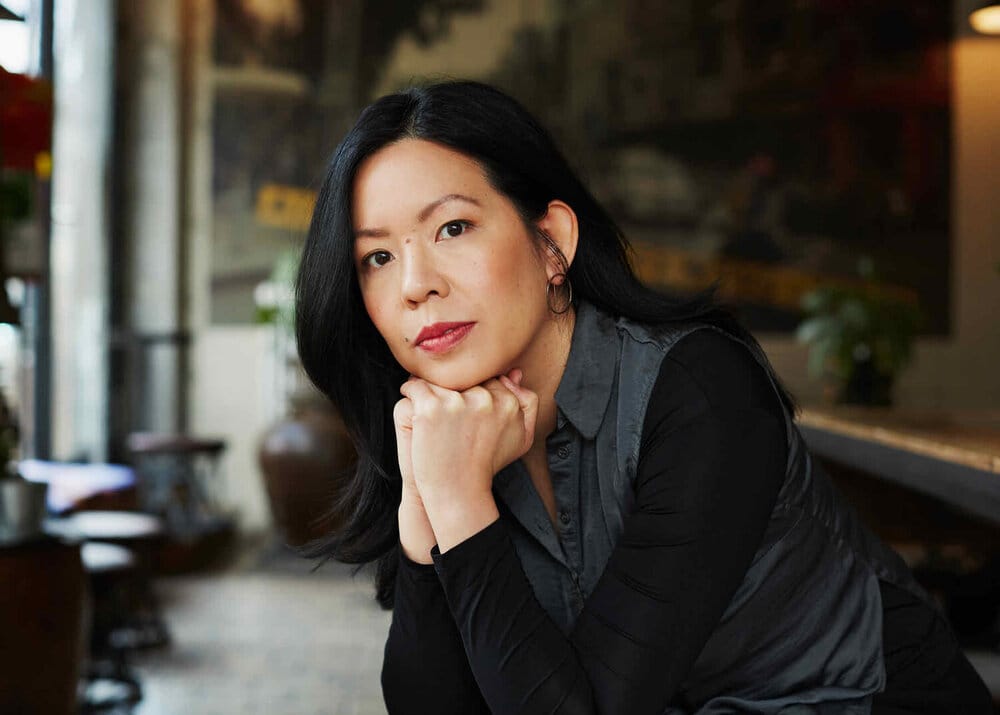A new addition to the catalogue of stories about the Vietnamese diaspora, Khuê Phạm’s Brothers and Ghosts (translated, somewhat unusually, from the original German to English by Charles Hawley and Daryl Lindsey) follows the three intertwining stories of Kiều, a Vietnamese German journalist, her father Minh who arrived in Germany in 1968, and of her uncle Sơn who migrated to America in 1975 the aftermath of the war between North and South Vietnam. Kiều’s father rarely speaks about his past and the family he hardly ever sees, while Kiều herself is often too occupied with her identity as a second-generation immigrant to begin asking questions. Her family’s history and the intergenerational trauma that comes with it becomes an unspoken topic that is only unraveled after the passing of Kiều’s grandmother, which brings the two brothers Minh and Sơn together again in California. Brought together in a single volume, the stories of Kiều, Minh, and Sơn provide a snapshot of the complexity of the Vietnamese diasporic experience, and how families can grow together as well as apart.
The war that ravaged Vietnam between 1955 and 1975 has spilled a lot of ink throughout the decades. From a frontline between capitalism and communism, to a symptom of American imperialism, to the root of diasporic intergenerational trauma, the war has taken on various shapes in the minds of both those who lived through it and those who feel its memory like an invisible weight. Brothers and Ghosts is part of a literary wave from the Vietnamese diaspora that shifts the focus away from the American experience of the war, and questions the simplistic way in which Vietnamese people are viewed. In English-language writing as well as in Vietnamese literature, there has long been the story of two opposing sides: the fervent supporters of communism in the North, or the freedom-loving people of the South, many of whom then become refugees fleeing from a country that no longer existed. By contrast, the book’s three points of view explore the different lens through which the war came to be perceived within a single Vietnamese family: Sơn, who was younger and who lived in Saigon (now Ho Chi Minh City) until after the end of the conflict, understood the war as a struggle against a socio-political movement that ruthlessly seized people’s properties and limited their freedoms; while Minh, the older brother who was sent to Germany as a way to help the family in the midst of the war, was exposed to debates about geopolitics and came to see the conflict as a proxy for American imperialism. Both brothers were raised as sons of a general in the South Vietnamese army—yet their separate circumstances lead them to different understandings of their national plight. Kiều, having been born after the war has ended, only saw the lingering effect of the war’s separation, in her parents silence and their distance from their own family. On top of that, Vietnam, the war, her physical appearance, the very name that sounds unfamiliar and difficult to pronounce in German that she has all forms an intangible heritage that separated her from her German peers.

By setting part of the book in Kiều’s youth, around the 2020s, and by writing from a German perspective, Brothers and Ghosts also explores how the political rift between Kiều’s father and his brother outlives the war: inexplicably to her, a person is still trying to find her place in Germany as the child of immigrants, her uncle is an ardent supporter of Donald Trump. To Kiều, coming from Europe, the platform Trump ran on in 2016 and the platform he governed from after that emboldens isolationism, xenophobia, sexism; meanwhile, to her uncle Sơn, as she would come to realise, Trump’s politics represents a pushback against the left-wing movements that remind him of the people who had forced him out of his country.
Author Khuê Phạm, with her background in journalism, portrayed these dynamics in geopolitics with nuance. Rather than suggesting a “correct” narrative, she traces the reasonings behind each character’s chosen ideology. At the same time, this professional background brings a succinct quality to Phạm’s writing—an ample demonstration of “tell”, not “show”—that keeps the reader at arm’s length from the sensations and emotions that the characters are experiencing. While the torment of becoming distant with one’s family—whether physically, emotionally, or politically—is well explained, the succinct writing does not always provide the space for readers to feel these inner dilemmas alongside the characters.
The ruminations of the characters, especially Kiều’s, nevertheless give rise to introspection. As she finds out about other parts of her family, Kiều’s understanding of how she has inherited this diasporic identity shifts and grows—the question of where she came from is no longer “a question that can only be answered with the name of some country of origin, but as a search for all those who came before [her] and left their visible and invisible traces along the path to the present.” She begins to see herself as part of a web through which movements and changes vibrate, rather than a lonely individual without any conventional identity.
Brimming with reflections about what it means to share an identity with a group of people scattered across the world, Brothers and Ghosts sheds light on how paradoxical diaspora can be—for how can there be a shared identity when being Vietnamese German is so different from being Vietnamese American, and both of these identities seem to be a world away from being Vietnamese itself? The novel hardly provides a straightforward explanation for this contradiction, and yet is all the more resonating for this, as such is the experience of being part of this sprawling network across time and space. So much is concealed by separation and trauma, and it is in these hidden stories that one can begin to make sense of how they got here, as well as where to go next.


You must be logged in to post a comment.